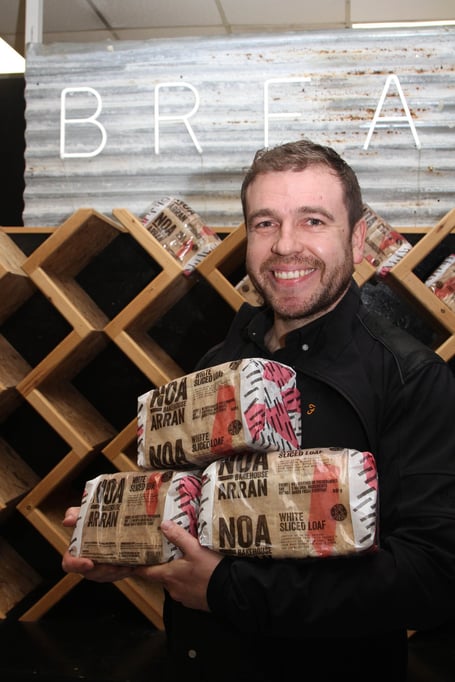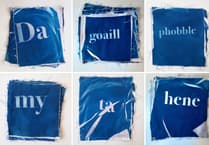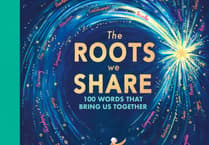When it comes to food security and our food and farming industry, the island has three strategic assets: the Meat Plant, Isle of Man Creamery and Laxey Glen Mill.
The recently announced closure of Ramsey Bakery has illustrated the truth of this. The company has been taking around 80% of the flour produced by the Mill and the loss of such a major customer is bound to put the future of the Mill itself on the line. The Mill has a number of stakeholders: the farmers who are contracted to grow milling wheat for them and the smaller artisan bakeries. These bakeries, including Noa and Ross, also use flour from the Mill: the quality of their product and their brand identity is built around supplying premium loaves using local ingredients.
Miles Pettit, owner of Noa Bakery, says: ‘Noa is still passionate about using local, working with the farmers, and working with the Mill in whichever shape or form this now happens and I guess the jury’s out on what this now means.
‘I love the Isle of Man and I think the idea that we’re able to grow wheat here, mill it here, work with that supply chain, steer that supply chain and have an impact on the good of it is fantastic. To think of the island without that makes me very sad.
‘It’s what we are: we support local. When we had to import wheat, when we had the wheat crop failure two years ago, I didn’t realise how linked I was to what we plant in the ground and to working with the farmers over here.
‘It’s not just an ingredient, using local is more than just an ingredient – it’s everything.’
Although both use local ingredients, Noa is obviously very different in both size and scale to Ramsey Bakery.
Miles says: ‘I’ve never wanted to compete with Ramsey Bakery: I respected them in the marketplace and we’ve always been different.
‘We’re very respectful for a business that’s been on the island for 50 years: they’ve done some great things for the Isle of Man.’
Noa has always been aimed at a very different market, using different production methods. Larger bakeries like Ramsey Bakery use the Chorleywood process, a method of efficient dough production that makes bread quickly, producing a soft, fluffy loaf. Around 80% of all bread in the UK is made in this way.
A Noa Bakery sourdough loaf can take up to three days to make because it is left to ferment naturally, producing cultures to make bread rise.
‘That’s our point of difference,’ says Miles.
It also clearly illustrates why these so-called artisan products, which use traditional methods, are more expensive than loaves churned out in enormous bakeries in the UK for the large supermarket chains. And, as Miles goes on to say, whilst urging people to support local, he is only too aware of the current surge in the cost of living and its effects on households.
He says: ‘We’ve got to think about it as an island: what do we want?
‘Maybe we’re happy to import that type of bread at a lower price point? It would sadden me but if that’s what the island wants to do, that’s the choice.’
The choice to simply buy cheaper products, however, does not take into account the longer term implications.
For example, around 30% of the world’s wheat comes from Ukraine and Russia and the conflict between the two countries will certainly cause shortages and price rises.
The Isle of Man is in the fortunate position of having a wheat crop in the ground, due for harvesting at the end of the summer, grown by farmers who are contracted to supply Laxey Mill. Do we want to lose the ability to grow the food to feed our island even if it costs a bit more?
As Miles says: ‘It’s really understanding what does the Isle of Man want. The big key thing is: does the Isle of Man want food security? Does the Isle of Man want a Mill? Does the Isle of Man want farmers to grow [its own] wheat?
‘Because now the public has to support it.
‘It’s no good just talking about it and buying imports, it’s about actually finding a mechanical way to make it work.
‘We, the public, should be saying what we want from the island and be communicating with Government. We should be telling them that this is what we feel is important for our island.’


.jpeg?width=209&height=140&crop=209:145,smart&quality=75)

.jpeg?width=209&height=140&crop=209:145,smart&quality=75)
Comments
This article has no comments yet. Be the first to leave a comment.